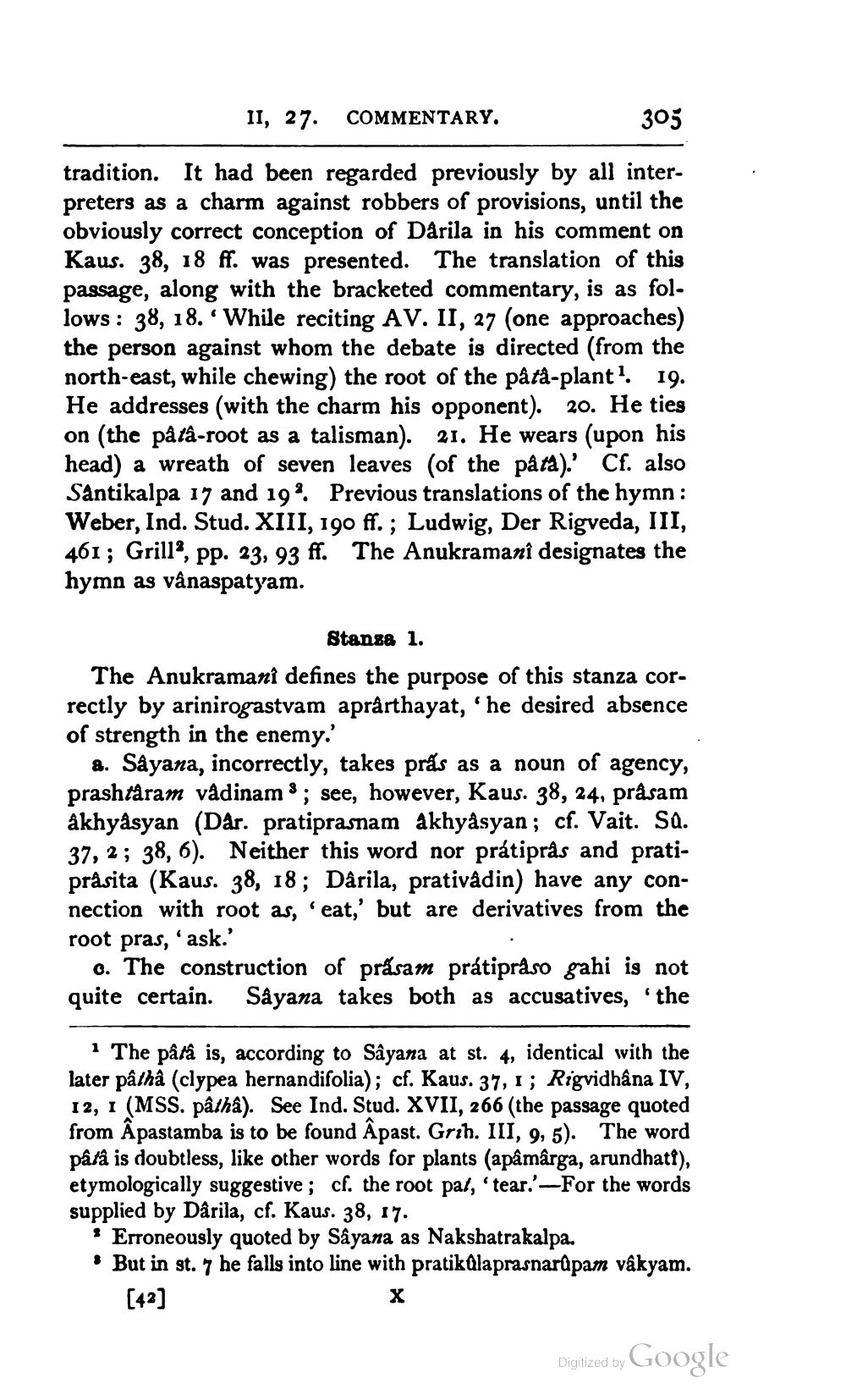________________
305
·
tradition. It had been regarded previously by all interpreters as a charm against robbers of provisions, until the obviously correct conception of Dârila in his comment on Kaus. 38, 18 ff. was presented. The translation of this passage, along with the bracketed commentary, is as follows: 38, 18. While reciting AV. II, 27 (one approaches) the person against whom the debate is directed (from the north-east, while chewing) the root of the pârâ-plant1. 19. He addresses (with the charm his opponent). 20. He ties on (the pârâ-root as a talisman). 21. He wears (upon his head) a wreath of seven leaves (of the pâta).' Cf. also Santikalpa 17 and 192. Previous translations of the hymn: Weber, Ind. Stud. XIII, 190 ff.; Ludwig, Der Rigveda, III, 461; Grill, pp. 23, 93 ff. The Anukramanî designates the hymn as vânaspatyam.
II, 27.
COMMENTARY.
Stanza 1.
The Anukramanî defines the purpose of this stanza correctly by arinirogastvam aprârthayat, 'he desired absence of strength in the enemy.'
a. Sâyana, incorrectly, takes prás as a noun of agency, prashtaram vadinam; see, however, Kaus. 38, 24, prâsam âkhyasyan (Dâr. pratiprasnam akhyâsyan; cf. Vait. Sû. 37, 2; 38, 6). Neither this word nor prátiprâs and pratiprâsita (Kaus. 38, 18; Dârila, prativâdin) have any connection with root as, 'eat,' but are derivatives from the 'ask.' pras,
root
c. The construction of prasam prátiprâso gahi is not quite certain. Sâyana takes both as accusatives, 'the
1 The pârâ is, according to Sâyana at st. 4, identical with the later pâ/hâ (clypea hernandifolia); cf. Kaus. 37, 1; Rigvidhâna IV, 12, 1 (MSS. pâthâ). See Ind. Stud. XVII, 266 (the passage quoted from Apastamba is to be found Âpast. Grih. III, 9, 5). The word pârâ is doubtless, like other words for plants (apâmârga, arundhat?), etymologically suggestive; cf. the root pa/, 'tear.'-For the words supplied by Dârila, cf. Kaus. 38, 17.
* Erroneously quoted by Sâyana as Nakshatrakalpa. But in st. 7 he falls into line with pratikulaprasnarûpam vâkyam.
[42]
X
Digitized by Google




